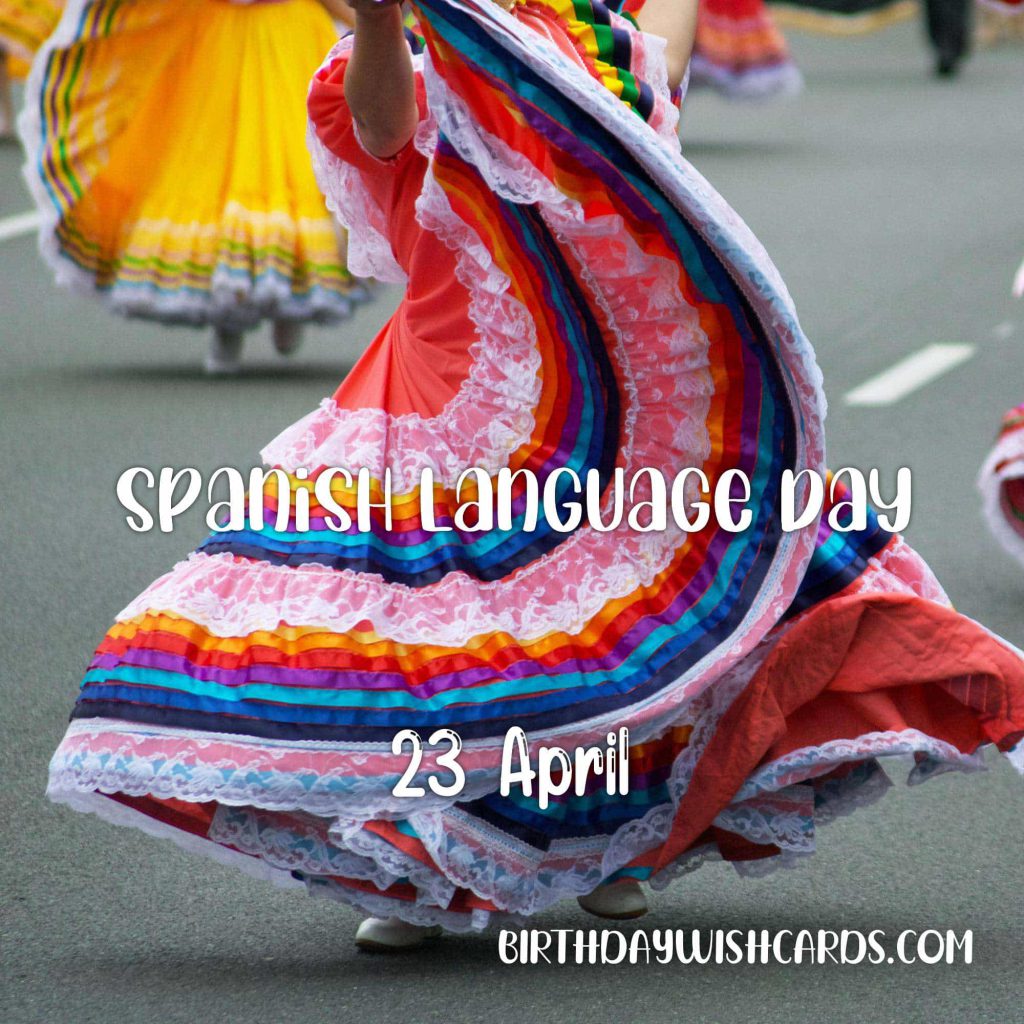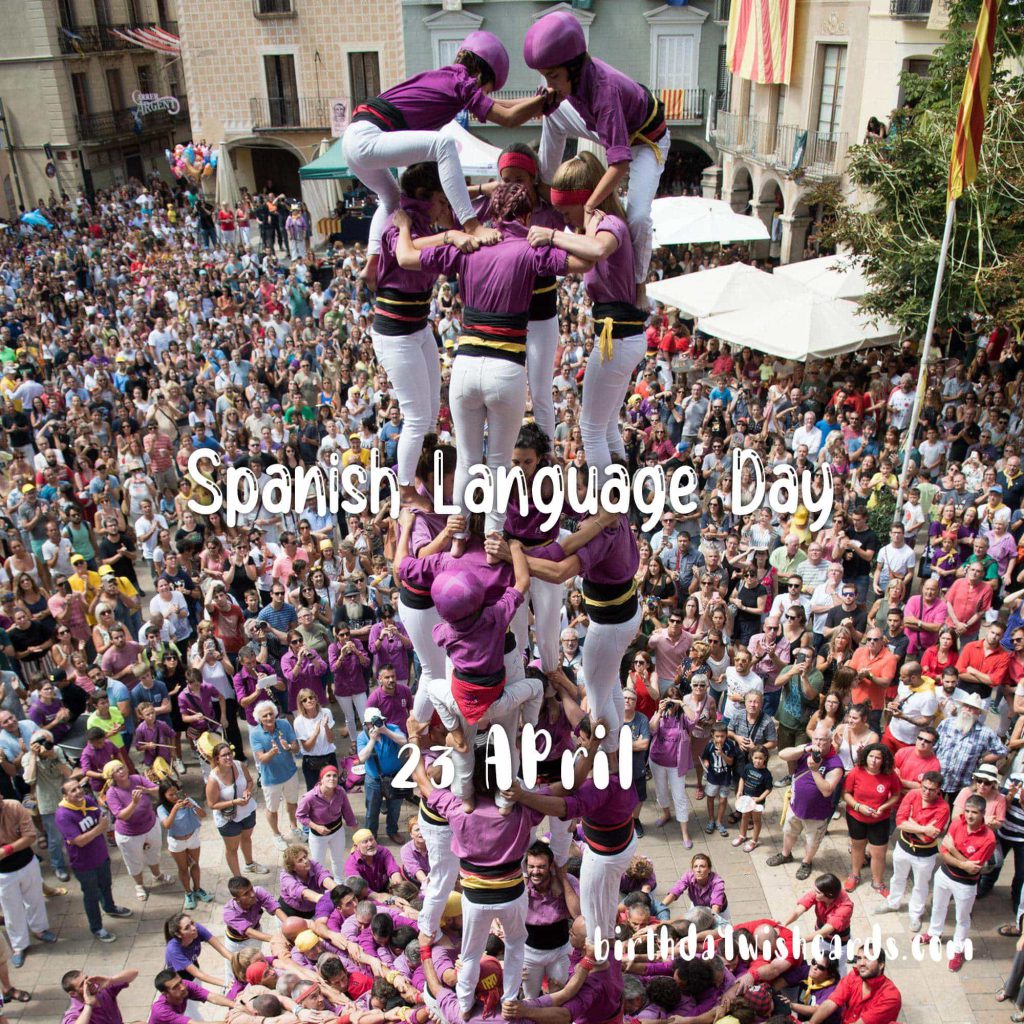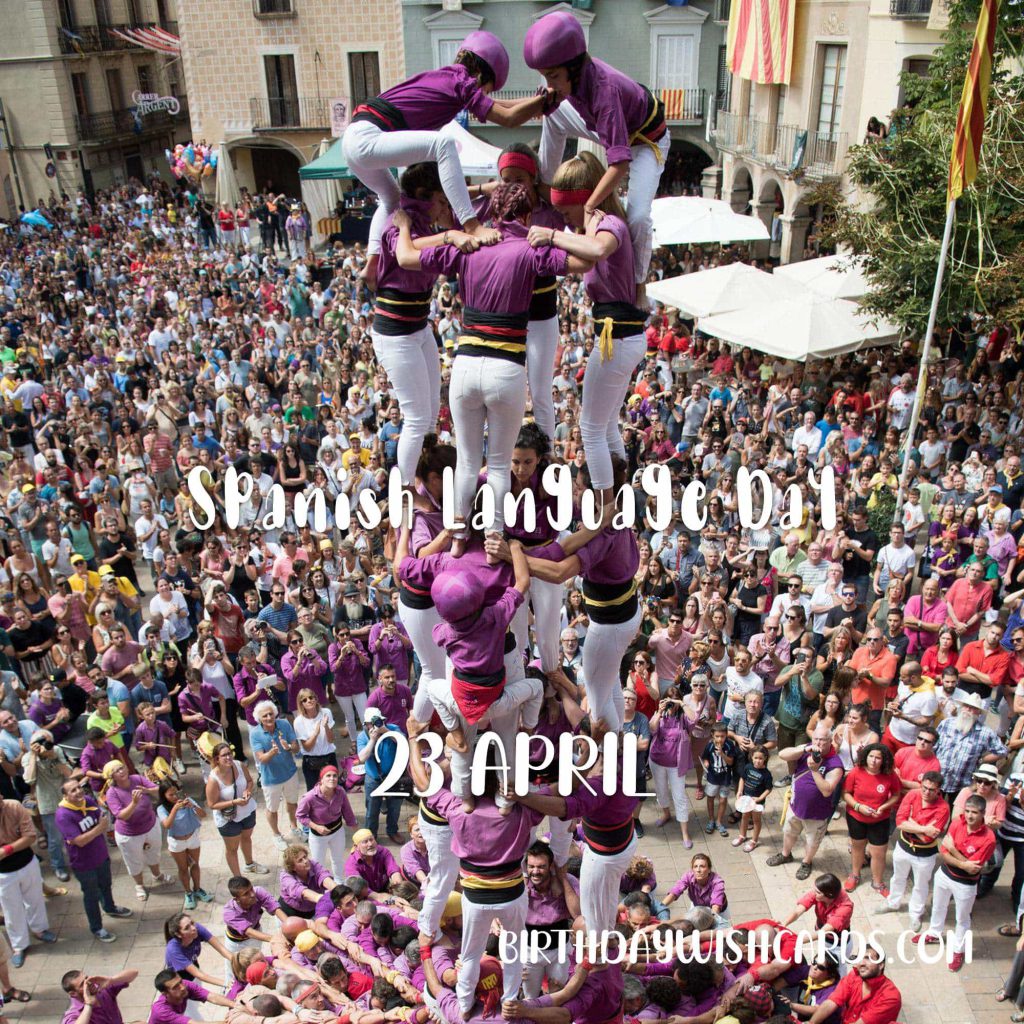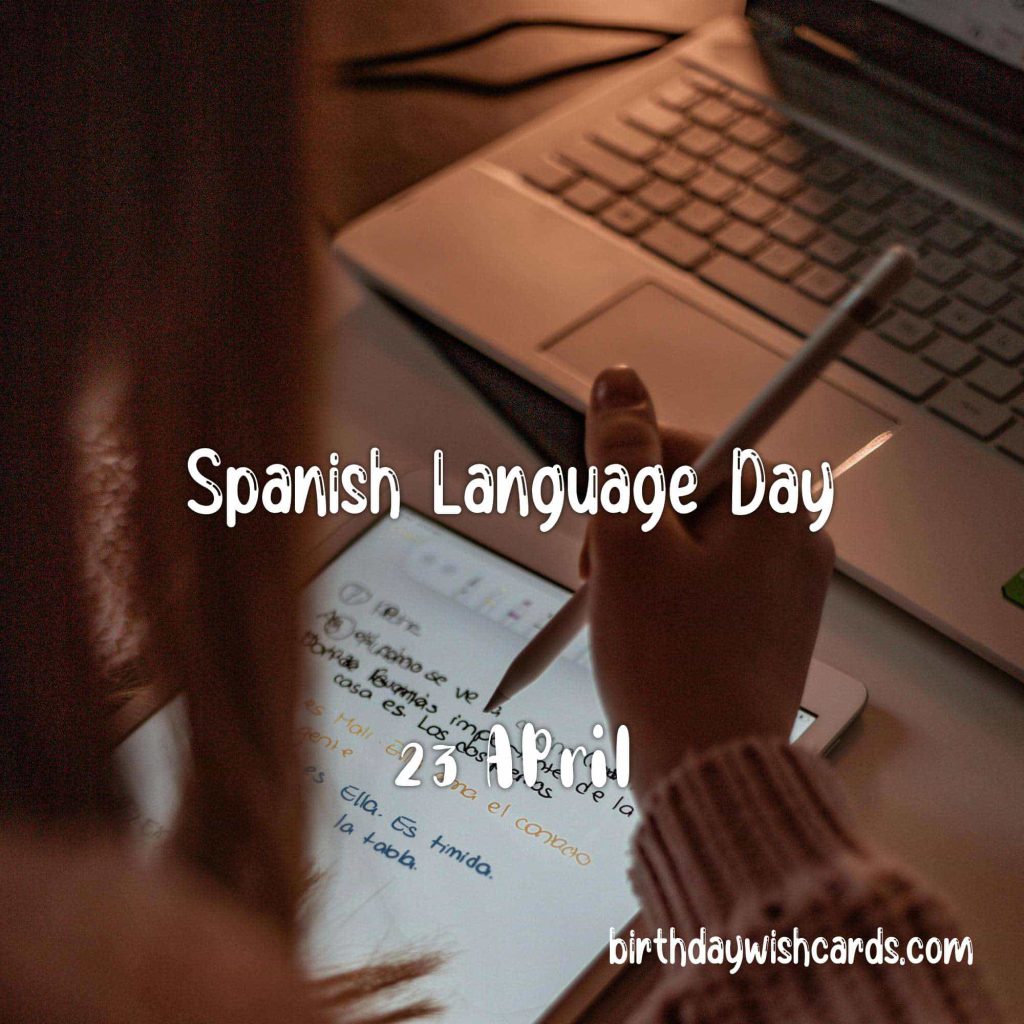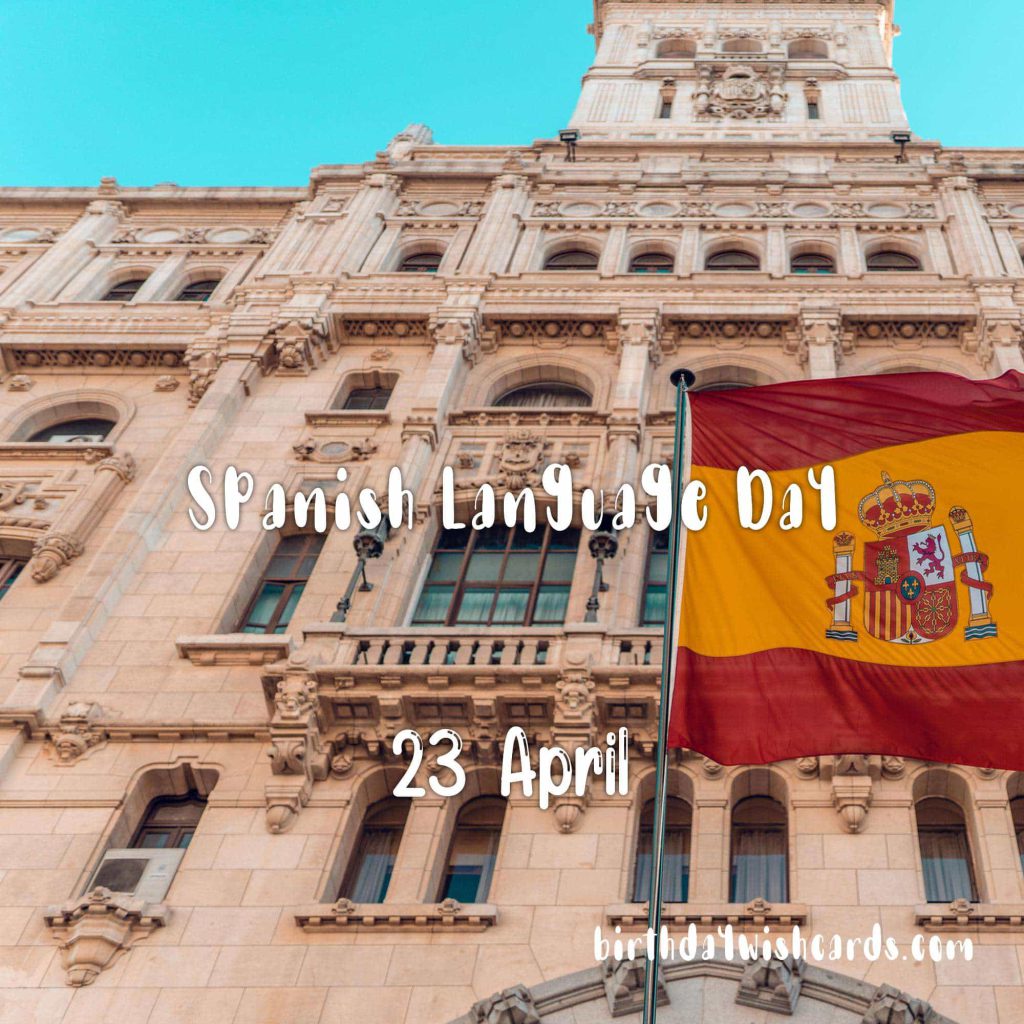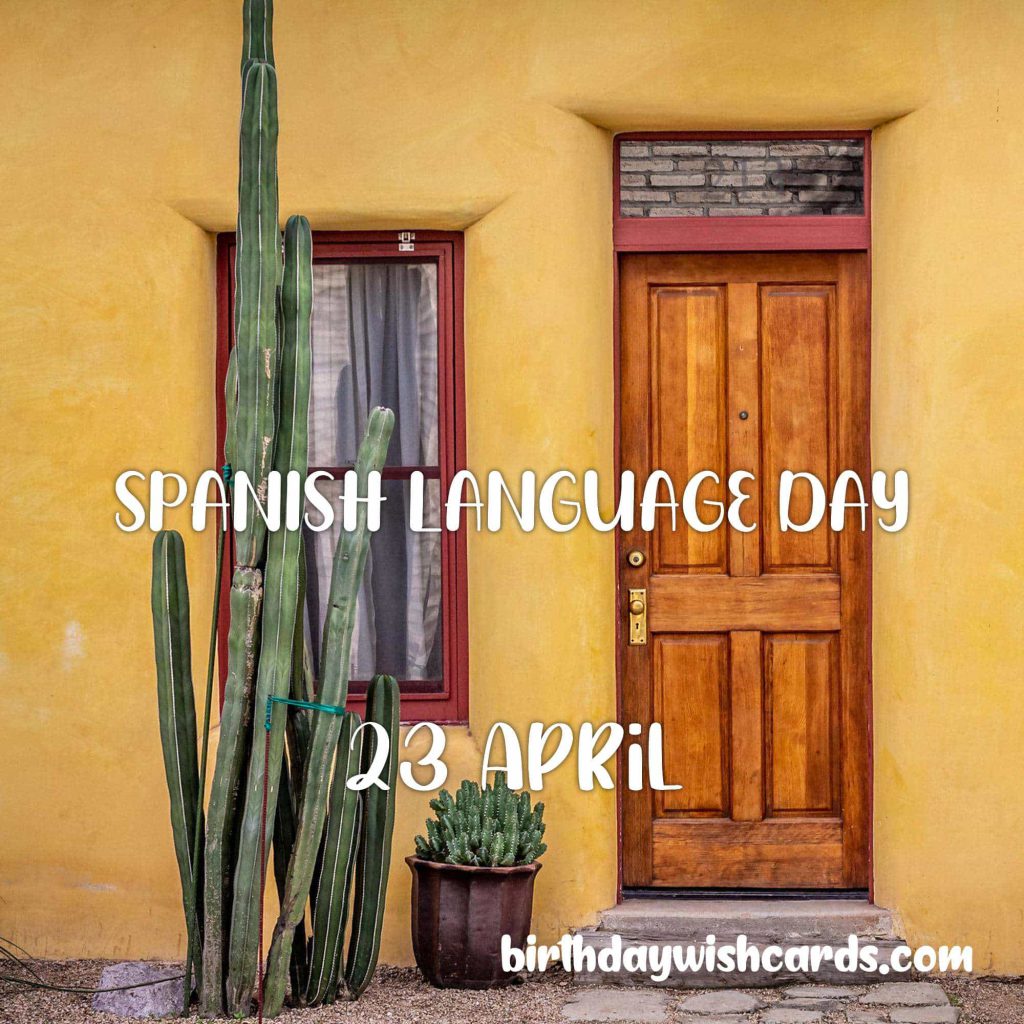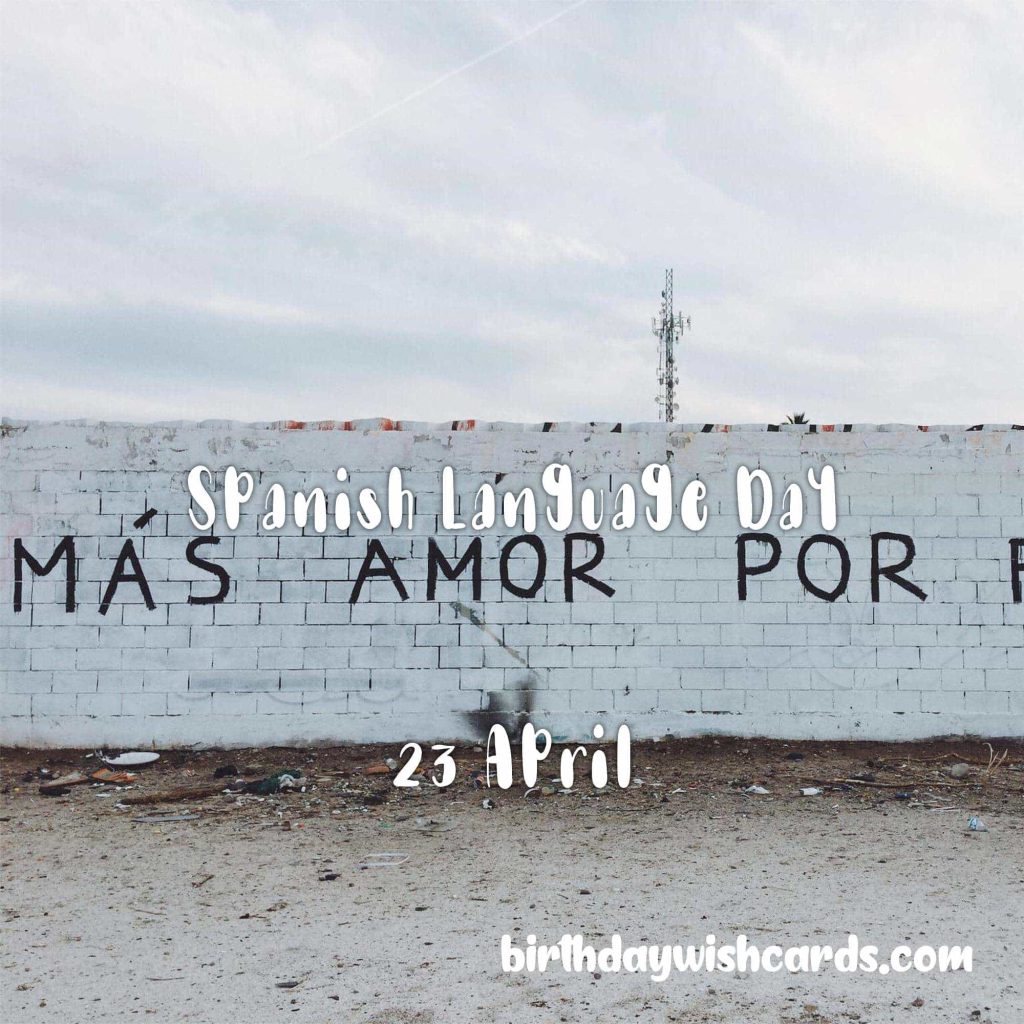
23 April: Spanish Language Day
Proclamation of the Day
United Nations Spanish Language Day is observed each year on 23 April. Established in 2010 by the UN Department of Public Information, this day celebrates multilingualism and cultural diversity, while promoting the equal use of all six official UN languages. Originally, the day was marked on 12 October to coincide with Día de la Hispanidad, commemorating Christopher Columbus’s arrival in the Americas. The date was later changed to 23 April to honor Miguel de Cervantes Saavedra, the celebrated Spanish writer who died in 1616.
History of Spanish Language Day
The idea of dedicating a day to Spanish literature dates back to 1926, when renowned writer Vicente Clavel Andrés first proposed the concept. The tradition began in Valencia, Spain, and soon spread nationwide. By 1964, it was embraced by Spanish-speaking countries around the world.
Initially, the celebration took place on October 12, a date symbolizing the spread of Spanish language and culture following Columbus’s voyage. However, the United Nations later moved the observance to 23 April, aligning it with the anniversary of Cervantes’s death and underscoring his enduring influence on Spanish literature.
UN agencies worldwide are encouraged to mark language days with diverse activities. These often include music, art, culinary events, and film screenings, all designed to highlight the cultural richness and importance of multilingualism.
The Legacy of Miguel de Cervantes Saavedra
Spanish Language Day also pays tribute to Miguel de Cervantes Saavedra, who passed away on 23 April 1616. Known as El Manco de Lepanto (The One-Handed Man of Lepanto), Cervantes is best remembered for his masterpiece, The Ingenious Gentleman Don Quixote of La Mancha. Widely regarded as the first modern novel, Don Quixote has profoundly influenced world literature and the Spanish language.
This iconic work remains one of the most translated and adapted books in history, inspiring generations of writers and readers across cultures. Cervantes’s contributions have not only shaped Spanish literature but have also enriched the global literary heritage.
Celebrations and Cultural Impact
Spanish Language Day is marked by a variety of cultural and educational events that promote the Spanish language and Hispanic culture worldwide. Common activities include:
- Literary readings and book fairs featuring Spanish authors
- Musical performances highlighting traditional and contemporary Spanish music
- Art exhibitions showcasing Hispanic artists and cultural heritage
- Culinary festivals with authentic Spanish cuisine
- Film screenings of Spanish-language cinema
These celebrations foster appreciation for the Spanish language and emphasize the diversity and vibrancy of Hispanic cultures around the globe.
The Global Reach of the Spanish Language
Spanish is one of the world’s most widely spoken languages, with over 580 million speakers, including native speakers, second-language speakers, and learners. It is the official language of 21 countries and holds official status in major international organizations such as the United Nations and the European Union.
The global presence of Spanish reflects its cultural, historical, and economic significance. The language has left its mark on literature, music, cinema, business, and diplomacy. Spanish Language Day serves as a reminder of this influence and underscores the importance of linguistic diversity worldwide.
Why Celebrate Language Days?
Language days, including Spanish Language Day, play a vital role in:
- Preserving linguistic heritage and encouraging language learning
- Promoting intercultural dialogue and understanding
- Supporting multilingualism as a foundation for peace and sustainable development
- Highlighting the role of language in identity and cultural expression
The United Nations recognizes six official language days: Arabic, Chinese, English, French, Russian, and Spanish. Each observance is dedicated to fostering respect for linguistic diversity and cultural richness.
Learn More About Spanish Language and Culture
To further explore the Spanish language and its cultural significance, visit resources such as the United Nations Spanish Language Day page and the Real Academia Española, the official institution overseeing the Spanish language.
Gallery
Enjoy this collection of images celebrating Spanish Language Day and Hispanic culture:
Kindness Challenge: Inspiring Others on Your Birthday


